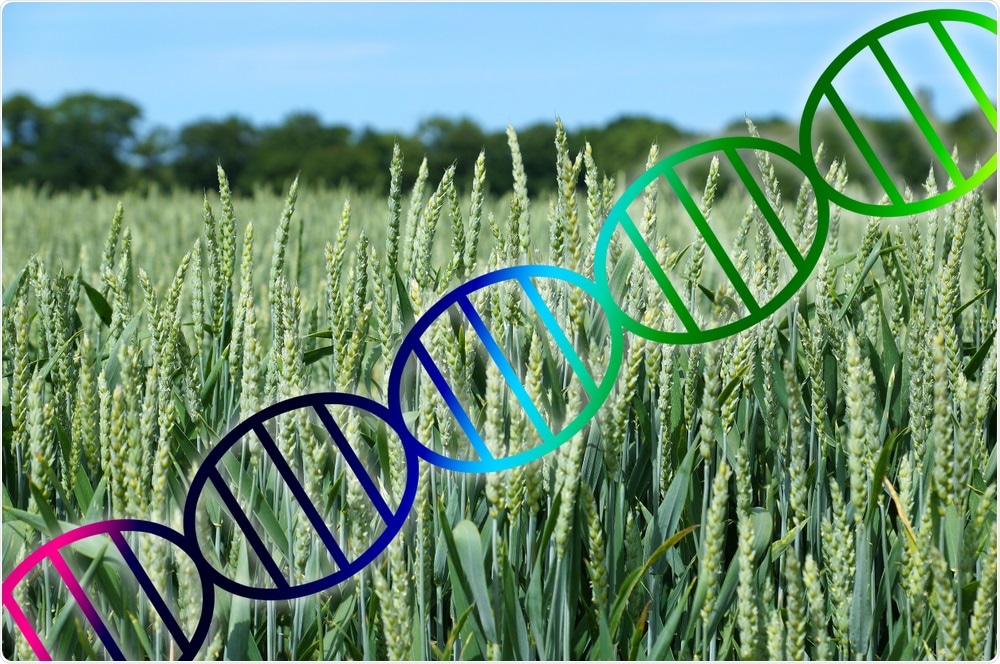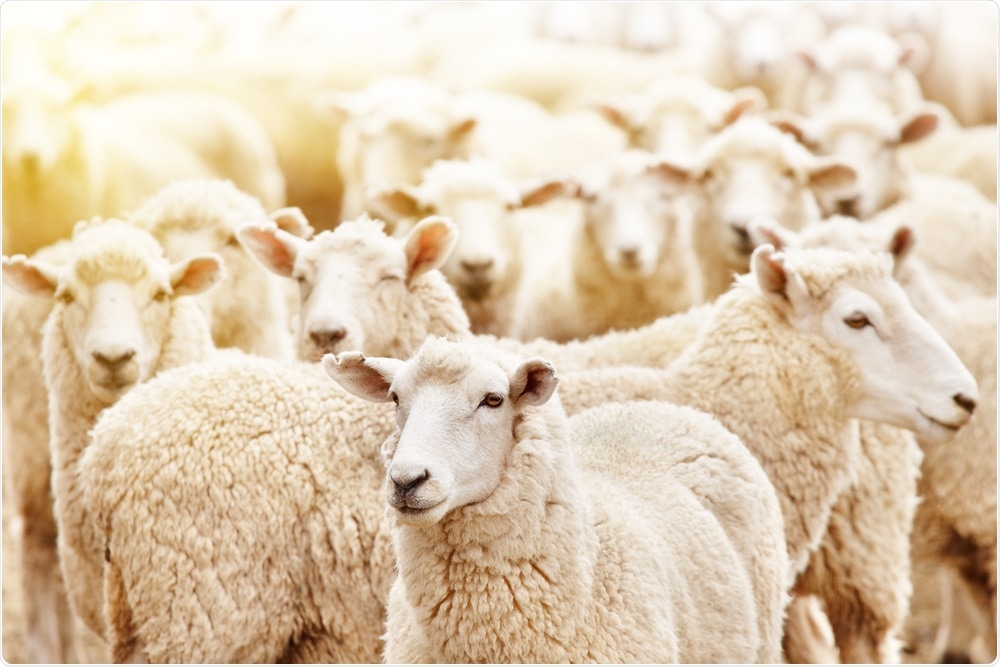In this interview, AZoLifeSciences speaks to the head of the RSPCA’s Animals in Science Department about the UK Governments latest news to remove restrictions around gene-edited crops, and whether gene-edited farm animals are next in line.
Please can you introduce yourself and tell us about your role within the RSPCA?
I’m Penny Hawkins, head of the RSPCA’s Animals in Science Department. My team and I work to achieve the RSPCA’s principal goal, which is the replacement of animal experiments with humane alternatives.
There has been a lot of exciting progress with Non-Animal Technologies, but there are still unfortunately scientific obstacles to achieving full replacement of lab animals. In the meantime, we work to ensure that animals are replaced wherever possible, that numbers and suffering are reduced, and that lab animal welfare improves.
Can you describe what is meant by the term ‘gene editing’ and how is this used currently within the agricultural industry?
The agricultural industry, and Defra (the UK Government Department for Environment, Food and Rural Affairs), define ‘gene editing’ as creating genetic changes that could have occurred either naturally or through traditional breeding. This excludes the creation of genetically modified (or transgenic) organisms, which have been engineered to include genetic material from other species.
An example of gene editing is the use of molecular tools such as CRISPR/Cas9 to induce double-strand breaks in the DNA of a farmed animal or crop species, with the aim of introducing desirable characteristics such as increased productivity. The fact that gene editing enables rapid, instant, substantial, and multiple changes to the genome creates serious ethical and societal issues - and welfare concerns - when applied to farmed animals.

Image Credit: Axel Bueckert/Shutterstock.com
The UK Government is removing restrictions around gene-edited crops in an attempt to ‘normalize’ this practice. What does this mean and what potential implications could this have for farm animals?
The Government has said it will implement current provisions, within the 1990 Environmental Protection Act, to lay a Statutory Instrument (a form of legislation that does not require an Act of Parliament) to help ‘free up’ gene editing of plants in research and development. In England, field trials of the safety and benefits of gene-edited crops will be permitted without mandatory risk assessments and consents.
Scientists will still have to notify Defra about trials, and the commercial cultivation of the crops and foods made from them will still need to be authorized in accordance with current legislation on Genetically Modified Organisms GMOs). However, we are concerned that steps towards ‘normalizing’ the gene-editing of crops could open the door to relaxing restrictions around the gene-editing of farm animals.
It was a relief to see that gene-edited animals will still be regulated under GMO legislation and the Animals (Scientific Procedures) Act 1986 for the time being, and that the Government has recognized that there are significant ethical and animal welfare issues that come into play when animals are gene-edited.
Yes, humans have been modifying animals for millennia by conventional breeding, and often causing serious welfare problems when they do this - but most people would agree there should be limits on what can be done to animals, how and for what purpose.
The mission of the RSPCA is to ensure all animals have a good life by advocating on their behalf. How does the concept of gene editing in farm animals threaten their welfare?
In many ways. First, the procedures used to create the founder animals can cause pain, suffering, distress, and lasting harm and are inherently inefficient. Many animals are used to produce a single individual with the desired edit, even with so-called ‘precision’ techniques like CRISPR/Cas9.
The founders will often need to be cloned to produce sufficient animals for a viable line, also involving painful, distressing, and inefficient procedures. Cloned fetuses can have developmental abnormalities with serious (or fatal) consequences for both dam and offspring.
Apart from these painful and risky procedures, the unintended and unpredictable effects of genome editing are still poorly understood. There can be adverse outcomes for the animal that are caused by the desired edit or by unintended changes - for example, naturally occurring double-strand breaks can lead to cancers.
Alterations elsewhere in the genome can also lead to adverse, ‘off target’ effects, because of the nature of the cell’s DNA repair systems. Taken as a whole, the increasing use of drugs, hormones, and now gene-editing technology threatens to push farmed animals even further towards - or further beyond - their biological limits.

Image Credit: Dmitry Pichugin/Shutterstock.com
The UK Government claims that gene editing could help with more sustainable and efficient farming along with a reduced environmental impact. However, you have stated that gene editing may not be the solution. What do you propose as more ethical ways to solve the issues of unsustainable farming practices?
The RSPCA believes there are alternative approaches to addressing human demands for protein, meats of specific qualities, and animals resistant or resilient to infectious disease.
More should be done to improve animal husbandry and reduce food waste - a shocking 12 % of the global production of meat and animal products is wasted every year, representing millions of animals. In some regions, the demand for meat and meat products is decreasing, calling some of the purported benefits of gene editing farm animals further into question.
Thinking about disease resistance, pathogens can and do adapt and change, which would make benefits short-lived. Different strains of pathogens may need addressing, and inherent disease resistance could be used to mask poor practices on-farm. Failure to address these issues could create a potentially disastrous disease reservoir for non-edited animals or wildlife.
More investment in vaccine development, and improved biosecurity, would require resources, changes in husbandry practices, and policy changes, but this would represent a sustainable and less ethically questionable approach to solving unsustainable farming practices.
How will the decision to allow gene editing of farm animals affect consumers buying these products?
It will certainly affect the many consumers who wish to purchase responsibly. Public dialogues (in the UK) have shown that many people are not convinced of the need to use gene editing to develop faster-growing animals, and increasing profitability is not seen as an acceptable use of the technology. It may well be the case that a significant proportion of consumers will not want to buy products made from gene-edited animals. This risks causing predictable and unpredictable animal suffering for little gain.
If gene editing creates a trait that could have occurred naturally or through traditional breeding, it could be difficult or impossible to detect. This creates serious concerns around traceability, product labeling, and consumer choice, especially in the absence of a mandatory requirement to label gene-edited products as such. It is vital for public trust, and to enable informed purchasing choices, that any products made from gene-edited animals are properly labeled. And product labeling should be transparent, without misleading euphemisms like ‘precision breeding’ or ‘smart breeding’.
What can people do to get involved and learn more?
Defra’s consultation on the regulation of genetic technologies is now complete, and you can view the Government’s response, including the next steps, at https://www.gov.uk/government/consultations/genetic-technologies-regulation/outcome/genetic-technologies-regulation-government-response
The RSPCA set out the ethical and welfare concerns in an action calling for GMO regulations to be maintained for animals here: https://www.rspca.org.uk/getinvolved/campaign/geneediting and a number of other organizations have differing views on the benefits and acceptability of gene editing farm animals, including GM Freeze (https://www.gmfreeze.org/) and the Roslin Institute (https://www.ed.ac.uk/).
You can check the Defra website to keep an eye on the policy development process around farm animals (https://www.gov.uk/government/organisations/department-for-environment-food-rural-affairs) and respond to any further consultations on gene editing, and you may also like to write to your MP. And remember that you can help farm animals every day by ‘eating less, eating better’, including reducing consumption and wastage of animal products and by choosing higher welfare schemes like RSPCA Assured (https://www.rspcaassured.org.uk).